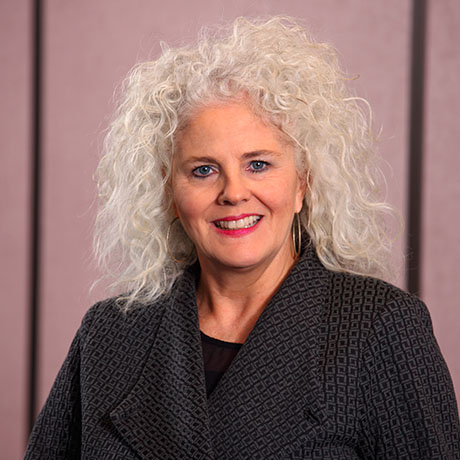Pitfalls to Avoid in Buying a Building


Money Pit or Cash Cow?
On occasion when a doctor purchases a practice there is also an option to purchase the real estate. Historically, real estate has been a good investment over time, but owning a commercial building has its own nuances.
There are a lot of similarities between owning a commercial building and a residential house. As the building owner or homeowner, you are responsible for paying the insurance, maintenance, and property taxes. Be sure to understand what your out-of-pocket costs are before you take on the responsibility of purchasing a property. Investing in a building or home inspection conducted by a reputable building inspector is always worth it.
Before you purchase a commercial building, know your demographics, and do your research. If a building is a steal, make sure you do some research to find out why. A commercial real estate broker that specializes in your industry can assist you in looking at the demographic information to fully understand the value of the real estate.
After you’ve purchased the practice, you are now the king of your castle and if you are business savvy, you can make a profit from owning your building. Having some knowledge of what to expect and what the pitfalls are of owning a building can save a lot of headaches down the road. For this article, we will consider that you are the owner and sole tenant of your building.
Maintenance – You’re now responsible for everything from the leaky roof, sweeping the parking lot, HVAC systems, lighting, ADA compliance, security systems, plumbing, and possibly the water and sewer mains underneath the property. The best advice is to adhere to a schedule with regular and preventive maintenance. Don’t skimp on issues that may seem small but that can turn into a bigger safety issue (both expensive and potential lawsuit if hazardous) in the long run.
A lot of potential challenges are dependent on the age of the building and how the previous owner took care of the property. You can hire a property manager to be the point of contact so you’re not distracted and can concentrate on your work. Some owners like to be involved in every decision, while others don’t want the hassle of being contacted for leaky pipes, clogged toilets, etc.
Insurance – a commercial building policy will differ from a residential homeowner’s policy on your home. A commercial policy will also have coverage for the business operations, its products, and operations liability. Much like homeowner’s insurance, the age and construction type of the commercial property will determine the premiums. Commercial insurance is also based on the neighborhood where the building is located.
Although chances are slim, some policies cover loss of income in the event of a fire or other loss of the building. These are usually additional policies that can provide peace of mind.
City ordinances – Although you may own the building, ownership doesn’t necessarily mean you can do anything you want. An example is a new building owner who wanted to utilize a specific size of a sign for his business, but the city ordinances stated a sign can be no bigger than 30 square feet. Be sure to reach out to the city before you decide to change or update the signage on your building and also verify if there are any restrictions for the exterior of your building such as signage, color, material, etc.
Taxes – There are two points on the taxes. First, for the building taxes, make sure your ownership is properly transferred to you during the purchase, and make sure that you keep up-to-date on your taxes. Set up an account directly within the municipality you are located or make sure your loan program is paying it directly. For your business taxes, owning your own commercial real estate has many tax advantages. Connect with your CPA, make sure you’re paying your real estate entity as a business expense, and more.
Money Pit or Cash Cow? There will be costs to owning your own commercial real estate, but taking the proper steps and working with an experienced commercial real estate broker that specializes in medical/dental purchases will save you time and a lot of money. Just think, if you are leasing a space, after 10 years you will be signing up for paying the landlord another 5 years of income. If you own, after 10 years, you will be working towards paying that building off and have the equity in the building.
Read MoreThe Importance of Your CPA During a Transition
The Importance of Your CPA During a Transition. Megan Urban of Omni Practice Group talks about why a dental-specific Certified Public Accountant is critical during your practice transition. Regardless if you are a buyer or seller, you should have a CPA who specializes in dental transitions. If you are a seller, your CPA will help guide you through the complexities of taxes and what you may owe before the sale of your dental practice, so you’re not caught off-guard at closing. They can also advise on the health of your retirement accounts.
As each State has different tax regulations, your CPA can help you navigate these issues with you. If you aren’t currently working with a Certified Public Accountant and would like a recommendation of a dental-specific CPA in your home State, please reach out and we can provide you with details. You can also contact us today for a complimentary snapshot valuation to find out what your practice is valued at. Either email info@omni-pg.com, or call us at 877-866-6053.
Benefits of Hiring a Broker


Why use a Dental Broker to Sell your Practice?
After many years of the hard work, long hours, and substantial investment that go into building a dental practice, you’re now thinking about selling the practice. It’s easy to assume that the practice will sell quickly and for a great price when you are ready to sell. Feedback from doctors who have recently sold their practices shows that the process is more complicated and stressful than anticipated. This is why it is essential to hire a dental broker to help guide you through the process.
Potential individual buyers and DSOs (Dental Service Organizations) will have experts who can help them navigate the sale. You will also need someone to advocate for you and help you understand the process from start to finish. In most cases, the last time you were involved in a practice sale was when you bought the practice, which means you need someone to help you navigate the process.
Benefits of Hiring a Broker
Here are just a few reasons why hiring a dental broker to assist with planning and selling your practice would be a sound investment.
- Determining Fair Market Price: At Omni Practice Group, we have certified practice appraisers that put together a valuation to maximize a fair market sales price for the practice and real estate (if applicable).
- Develop a Marketing Plan for the Practice while Maintaining Confidentiality: Omni provides confidential marketing and advertising services for your practice that do not identify you or your practice until a buyer is screened and signs a confidential Non-Disclosure Agreement. Omni also provides the financial prospectus for your practice along with confidential personal showings of the practice to potential buyers. Finding the right buyer that you will want to take over your practice can take some time. Good practices can sell quickly, but some can take months or even a year to sell.
- Letter of Intent: Omni brokers negotiate on your behalf, a Letter of Intent with your approval for the purchase price of the Practice and the Accounts Receivable. Your broker will also guide you through the due diligence conditions for bank financing, help negotiate a new lease agreement, non-compete agreements, and other conditions that both the seller and the buyer will agree on. If real estate is included, your Omni broker will determine the value of the real estate with a “Broker’s Real Estate Opinion” that is used to market the real estate with the practice.
- Finalizing the Sale: Your Omni broker works with you to determine a possible closing date based on whether your practice has real estate to sell or a lease that will be negotiated with the new owner. Omni’s brokers work with attorneys to finalize the Asset Purchase Agreement for both the seller and the buyer.
Omni’s 70-point-plus checklist helps guide both the seller and the buyer through the process of items to be completed prior to the sale closing.
A banker at one of the major banks recently said, “A high percentage of deals that fall apart is due to the seller not using a dental broker.” Using a broker typically saves sellers a lot of time, money, and headaches in selling their practices.
Omni Practice Group has been helping dentists for over 15 years with the planning and transitioning of their practices. If you’re thinking about selling now or in the next few years, give us a call for a “free consultation” to help you determine a plan that works for you and how we can assist with a smooth and profitable transition – 877-866-6053.
Read MoreSelling Your Practice Yourself – Penny Smart and Dollar Foolish


You’ve heard the stories of people doing their own electrical work on their house only to be electrocuted when they try fixing the bathroom light while standing in the bathtub full of water. Or the person who decides to fix his brakes on his car only to accidentally cut his brake line and end up driving off a cliff. They have awards for some of these mishaps. They’re called the Darwin Awards.
Deciding to sell your own practice may not give you a fate as extreme as the Darwin Awards, but it could cost you money, your staff, lose patients for the buyer, or end up in a lawsuit. That’s if the sale even makes it all the way to the closing table. I have been selling practices for 15 years. I keep thinking I have seen it all, but then something out of the blue pops up. For example, I was called as an expert witness to review agreements in a prior sale where the buyers were suing the seller. The buyers thought they were buying a practice and a building. They wanted to save money and not use a broker, or an attorney. The buyers showed up at the practice after closing only to find an empty space. It turned out, they just bought the building and not the practice. The agreement used was a real estate purchase and sale agreement and was not for a practice sale – a big and costly mistake on both sides.
Lenders and attorneys report that practices that are sold without a broker have a 50% chance of failing before the practice closes. I believe the failure rate to be higher than that. Reasons they fail include buyers losing interest, seller and buyer can’t negotiate a disputed item or clause, seller and buyer don’t know the steps to the transaction, and confidentiality is breached by one of the parties. A failed sale can disrupt a practice if the staff leaves knowing the practice is on the market.
When selling a practice, you need to wear a lot of hats and possess expertise in a wide variety of areas. Transition consultants need to be knowledgeable in law, accounting, tax, real estate, valuations, psychology, negotiations, design, equipment, technology, software, project management, sales, analysis, practice management, human resources, and mediation. In addition, you need to have a lot of extra time. On average it takes 200 hours to sell a practice a lot more if the sale is to a corporate buyer. That time includes gathering data to do the valuation. Putting the valuation together. Developing a prospectus or offering. Creating advertising, placing the ad, taking phone calls, meeting prospective buyers, doing background checks on buyers, talking with lenders, assisting buyers in due diligence, working with attorneys, negotiating bumps in the road, reviewing agreements, and more.
You also run a financial risk. You could undervalue your practice or get taken by a buyer who is good at talking and negotiating a good deal for themselves. If there is a corporate buyer involved, you need a broker even more. Brokers can assist in negotiating amongst several corporate buyers to ensure you get not only the best value for your practice but also the best terms. Corporate transactions require a lot more scrutiny, due diligence, negotiating, and time. Done right and with patience and you also can reap the reward.
Selling your practice on your own may not get you a Darwin Award. But, doing so comes with a lot of risks and requires a lot of time and expertise. Why risk the equity you have built up over the years to save money? Pennywise and dollar foolish could cost you thousands, if not hundreds of thousands of dollars as well as non-monetary losses.
Give Omni a call today for a free consultation and learn how we can help. Call 877-866-6053 or email info@omni-pg.com.
Read MoreWant Your Own Practice, But Don’t Know Where to Start?


The decisions you make now will impact you and your income today and in the future. We are here to assist you to make the best decisions for you and your family.
Gather your team of trusted advisors.
- Start with your Transition Advisor and they can recommend dental-specific banks, attorneys, and CPAs to guide you every step of the way. We’ve done this many, many times, and want to share our experience.
- We understand money is a concern, but decisions you make now can equate to thousands of dollars that you may never recoup over your career, so gathering your team of trusted advisors is priceless.
Your Transition Advisor can help you:
- Understand the practice and the purchasing process.
- Assist you to do a chart audit and other due diligence to determine the cash flow and if it is the right practice for you.
- Work with your other advisors to set up the best entity for your practice, acquire solid financing, and ensure all necessary documents and contracts are in place.
- Make a plan to retain patients and team, and implement processes and procedures to help you to increase production and collection, as well as reduce stress.
We can help you with the process of buying a dental practice. Contact us today!
Read More